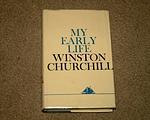The Greatest British "South Africa" Books of All Time
Click to learn how this list is calculated.
This list represents a comprehensive and trusted collection of the greatest books. Developed through a specialized algorithm, it brings together 300 'best of' book lists to form a definitive guide to the world's most acclaimed books. For those interested in how these books are chosen, additional details can be found on the rankings page.
Genres
The category of "South Africa" in books refers to literature that is set in or about the country of South Africa. This includes works of fiction, non-fiction, and memoirs that explore the history, culture, politics, and social issues of the country. These books may cover topics such as apartheid, the struggle for democracy, the impact of colonialism, and the diverse communities that make up South Africa. The category of "South Africa" offers readers a chance to explore the complexities of this fascinating country and gain a deeper understanding of its people and their experiences.
Countries
Date Range
Reading Statistics
Click the button below to see how many of these books you've read!
Download
If you're interested in downloading this list as a CSV file for use in a spreadsheet application, you can easily do so by clicking the button below. Please note that to ensure a manageable file size and faster download, the CSV will include details for only the first 500 books.
Download-
1. King Solomon's Mines by H. Rider Haggard
This adventurous novel follows the journey of a group of explorers who set out to find the legendary King Solomon's Mines in unexplored Africa. Led by a brave hunter, they face numerous dangers including wild animals, hostile tribes, and harsh landscapes. Their journey becomes a fight for survival, and they discover a lost kingdom along the way. The novel explores themes of colonialism, masculinity, and the allure of the unknown.
-
2. The Worst Journey in the World by Apsley Cherry-Garrard
"The Worst Journey in the World" is a gripping account of the Terra Nova Expedition to the South Pole in 1910-1913. The book vividly describes the perilous journey undertaken by a team of explorers, their struggles with brutal weather conditions, and the tragic loss of their leader and four other members on their return from the Pole. The narrative is not only about physical survival in harsh conditions, but also about the psychological toll of such an expedition, making it a timeless testament to human endurance and spirit.
-
3. The Grass Is Singing by Doris Lessing
Set in 1940s Southern Rhodesia (now Zimbabwe), this novel explores the life of a white woman, Mary, who marries a poor farmer, Dick Turner, and moves to the African veld. The story delves into their failing farm, their troubled marriage, and the racial tension surrounding their life. The isolation and harsh African environment take a toll on Mary's sanity, leading to a complex and ultimately fatal relationship with her black houseboy, Moses. The book provides a stark examination of the inherent racism of colonialism and the tragic consequences it can have on both the oppressors and the oppressed.
-
4. My Early Life by Winston Churchill
This memoir provides a captivating look into the early years of a man who would become one of the most influential figures in British history. The book covers his childhood, his experiences at various schools, his time in India and his early political career. It also provides an insight into his experiences as a war correspondent in the Boer War. The narrative is filled with personal anecdotes, reflections, and a good dose of humor, offering a unique perspective into the formative years of this renowned statesman.
-
5. Nine Pints by Rose George
This book offers an in-depth exploration of blood, a substance that is both a vital component of our physiology and a symbol of life, death, and disease throughout human history. The narrative takes readers on a global journey, delving into the science, culture, and commerce of blood, from the history of bloodletting to the contemporary controversies surrounding blood donation and the blood trade. Through engaging storytelling, the author reveals the complexities of blood as a biological entity and its broader significance in society, touching on topics such as menstruation, bloodborne diseases, and the life-saving role of blood transfusions, while also examining the ethical implications of blood banking and the global inequalities in blood supply and access.
Reading Statistics
Click the button below to see how many of these books you've read!
Download
If you're interested in downloading this list as a CSV file for use in a spreadsheet application, you can easily do so by clicking the button below. Please note that to ensure a manageable file size and faster download, the CSV will include details for only the first 500 books.
Download



